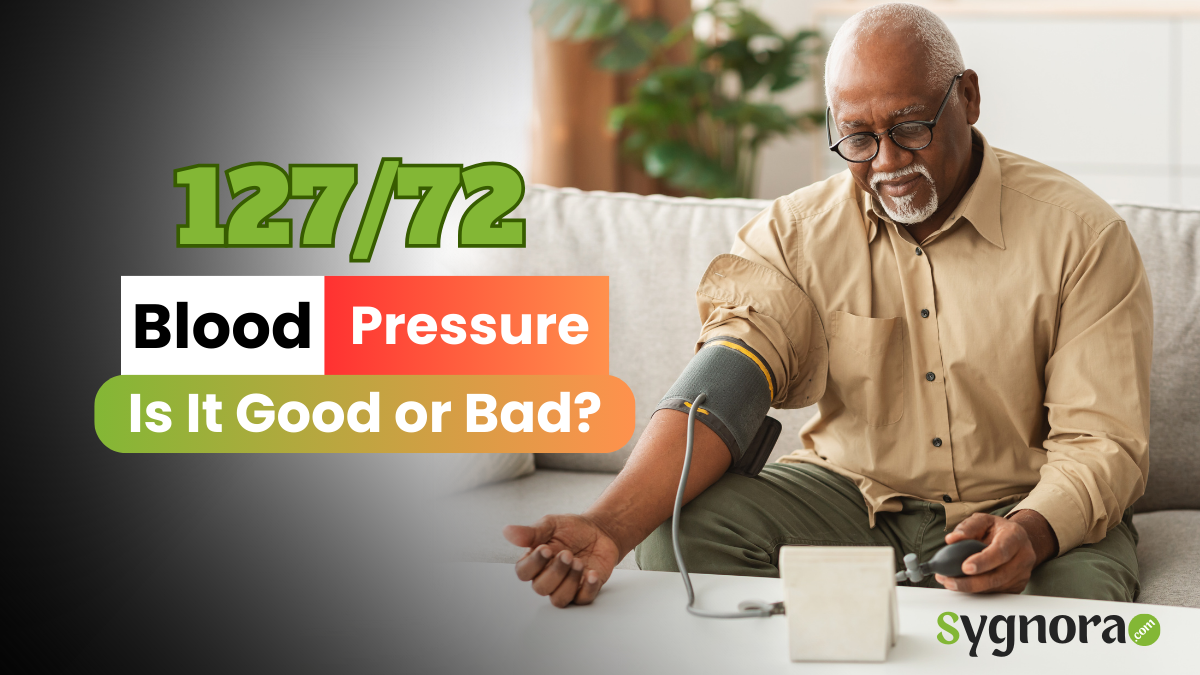If you recently found out that your blood pressure is 130/80, you are probably experiencing mixed emotions. Maybe a hint of confusion, a touch of concern, and maybe even a glimpse of disbelief. After all, wasn’t 120/80 the number everyone was striving for?
In 2017, the American Heart Association and the American College of Cardiology released revised blood pressure guidelines.
These new guidelines mean that a reading of 130/80 now falls under the technical definition of stage 1 hypertension. But don’t panic – this is where understanding and taking responsibility for your health begins.
What 130/80 Really Means?
Perspective is Everything: While a consistent blood pressure reading of 130/80 is in the hypertension range, its significance varies based on several factors:
- Age: A 130/80 reading in your 20s with no health problems carries a different message than the same reading in your 60s.
- Family History: If your family has a history of heart disease or stroke, your doctor will be more attentive to this number.
- Overall Health: Conditions like diabetes or kidney disease heighten the importance of blood pressure control.
The Importance of Tracking: A single blood pressure reading is simply one piece of data. Tracking your blood pressure at home over time provides invaluable information for you and your doctor. Here’s why:
- White Coat Syndrome: Some people get anxious in medical settings, leading to uncharacteristically high blood pressure readings. Home monitoring can reveal your real baseline.
- Capturing Trends: Is your blood pressure gradually creeping up, or was it a temporary spike? Trends offer far more insight than isolated readings.
Potential Causes of Elevated Blood Pressure
Understanding the causes of elevated blood pressure is paramount in addressing the issue effectively. Several factors contribute to a reading of 130/80 or higher, including:
Lifestyle Choices:
- Poor diet high in sodium and low in potassium.
- Sedentary lifestyle and lack of regular exercise.
- Excessive alcohol consumption.
- Smoking.
Stress and Mental Health:
- Chronic stress.
- Anxiety and depression.
Genetics:
- Family history of hypertension.
Medical Conditions:
- Diabetes.
- Chronic kidney disease.
- Sleep apnea.
Age and Gender:
- Blood pressure tends to rise with age.
- Men are generally more prone to hypertension until women reach menopause.
Strategies for Managing 130/80 Blood Pressure
The good news is that elevated blood pressure is often manageable through lifestyle changes and, if necessary, medical intervention. Here are some strategies to help navigate the waters of 130/80 blood pressure:
Adopt a Heart-Healthy Diet:
- Increase consumption of fruits, vegetables, whole grains, and lean proteins.
- Limit salt intake to reduce sodium levels.
Embrace Regular Exercise:
- Aim for at least 150 minutes of moderate-intensity aerobic exercise per week.
- Incorporate strength training exercises at least twice a week.
Maintain a Healthy Weight:
- Achieve and maintain a body mass index (BMI) within the healthy range.
Manage Stress:
- Practice stress-reducing techniques such as meditation, deep breathing, or yoga.
- Ensure adequate sleep.
Limit Alcohol and Quit Smoking:
- Moderate alcohol consumption.
- Quit smoking and avoid secondhand smoke.
Regular Monitoring and Medical Checkups:
- Monitor blood pressure regularly at home.
- Attend regular checkups with a healthcare professional to assess overall cardiovascular health.
Medication Adherence:
- If prescribed medication, adhere to the recommended dosage and schedule.
- Inform healthcare providers of any side effects or concerns.
How Nata Controls her blood pressure?
Nata, a 45-year-old woman, always considered herself relatively healthy. When her blood pressure hit 130/80, she was shocked. After working with her doctor and embracing lifestyle changes, she proudly shares:
“I lost some weight, started walking every day, and even cut my salt intake in half. Six months later, my blood pressure is a healthy 118/75! It feels amazing to take control.”
Dietary Priorities for Managing Blood Pressure
The DASH Diet: The Dietary Approaches to Stop Hypertension (DASH) is specifically designed for blood pressure management. It emphasizes:
- Fruits and vegetables: Rich in potassium, fiber, and antioxidants
- Whole grains: Good source of fiber and magnesium
- Low-fat dairy: Provides calcium and vitamin D
- Lean proteins: Fish, poultry, beans, nuts
- Low in saturated/trans fats: Avoid processed foods, fatty meats
- Sodium Restriction: Crucial! Aim for under 1500mg sodium per day.
Specific Foods to Emphasize
- Potassium-rich: Bananas, avocados, sweet potatoes, spinach, beans
- Magnesium-rich: Leafy greens, nuts, seeds, whole grains
- Omega-3 fatty acids: Fatty fish (salmon, tuna), flaxseeds, chia seeds
- Beets: High in nitrates which may help relax blood vessels
- Low-fat yogurt: Contains beneficial bacteria and calcium
What to Limit/Avoid
- Salt: The biggest offender. Avoid processed foods, use herbs/spices for flavor.
- Excess Caffeine: Can temporarily spike blood pressure.
- Alcohol: Limit intake significantly, and consider quitting altogether
- Sugary Drinks: Empty calories that contribute to weight gain and worsen health markers.
Beyond Diet: Important Lifestyle Changes
- Regular Exercise: Aim for at least 30 minutes of moderate-intensity exercise most days of the week.
- Weight Management: If overweight, losing even a small amount can make a difference.
- Stress Management: Find healthy stress-reducing activities (yoga, meditation, etc.).
- Adequate Sleep: Lack of sleep can negatively affect blood pressure.
Synopsis
Discovering that your blood pressure is 130/80 can be a turning point. It’s a message from your body urging you to take proactive steps toward better long-term health. It might feel overwhelming at first, but remember that knowledge is power.
Understand what this blood pressure reading means for you specifically. Partner with your doctor to develop a personalized roadmap. Embrace the habits that will not only lower those numbers but also improve your overall vitality.
Think of 130/80 not as a scary label but as the catalyst for a healthier, happier future. It’s a journey well worth taking, and one that starts with a single step.
Resources for More Information
- The DASH Diet: https://www.nhlbi.nih.gov/education/dash-eating-plan
- American Heart Association: https://www.heart.org/
- Dietary Approaches to Lower Blood Pressure: https://www.webmd.com/hypertension-high-blood-pressure/how-to-lower-blood-pressure



